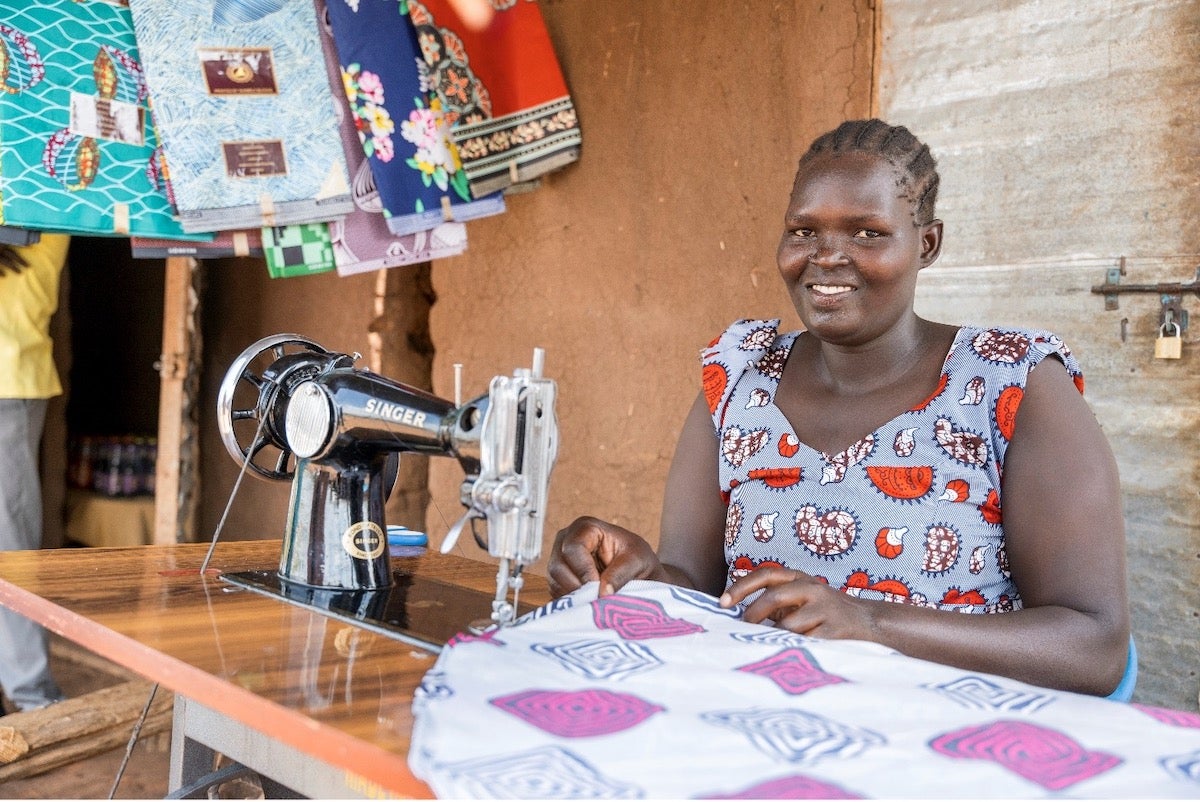Second chance education offers new ray of hope for South Sudanese refugees living in Uganda
Date:

A year ago, I would wake up to a life filled with anxiety and migraines every day. At night I wondered what I would do the next day to earn an income. At dawn I roamed through the refugee settlement and host communities looking for a casual job so that I could earn an income. This was my life since September 2016 when I started living here in Zone 2, Bidi Bidi Refugee Settlement in Yumbe District (in northern Uganda). I live here with my husband and four children.
With no money and no job, I depended only on the rations provided to the refugees. This meant no change of diet, access to basic necessities was difficult and I could not afford decent items including bedding for my family. Even when I joined a savings group it was difficult for me to keep up to date with my savings. I could only save on days I managed to get a cash for work opportunity. With cash for work I would get paid and I would use part of the money to save and spend a portion to meet basic needs for my family. But cash for work opportunities are rare in the refugee settlement.
My story changed for the better when UN Women’s implementing partner, CARE International, identified me as a beneficiary for the second chance education programme. I applied and was selected to do the vocational course of my choice – catering and hotel management. I participated in a rigorous training for three months and earned a certificate in catering conferred by the Uganda Business and Technical Examinations Board (UBTEB) under the Ministry of Education and Sports. In April 2022, I was able to open God is Able restaurant in Zone 2 in Bidi Bidi Refugee Settlement. I prepare local dishes mostly targeting people in the market. I am assured of at least 20 customers per day.
Having this certificate has opened doors for me. This year, one of the humanitarian organizations that is implementing programmes in Bidi Bidi called for proposals from organizations or individuals that can offer vocational training to young people in catering. I submitted my proposal and I was selected to train 35 young people. I am training and mentoring them in catering, baking and hotel management. This opportunity has enabled me to earn a monthly income of UGX 400,000 ($110) in addition to what I earn daily from my restaurant.
Before coming to Uganda, I had trained in tailoring but I did not have a sewing machine to practice my skills. With this additional income I have been able to procure two sewing machines and I am now employing one person to attend to this tailoring enterprise. My restaurant usually serves breakfast and lunch so I am able to use my evenings to attend to the tailoring business.
My life now is busy. I am occupied and no longer have those negative thoughts that caused me stress and headaches. I feel happy that I can contribute to my family’s well-being. My dream is to further my education and attain a diploma in catering and expand my restaurant to become a big hotel.
Alice Ledu is a South Sudanese refugee living in Bidi Bidi Refugee Settlement in Yumbe District. UN Women, with the financial support of the Government of Japan, was able to equip 293 refugee women and girls with vocational skills after completing second chance education. The provision of startup capital has enabled all the 293 women to be productive and start practicing their trade in the various vocational skills gained.